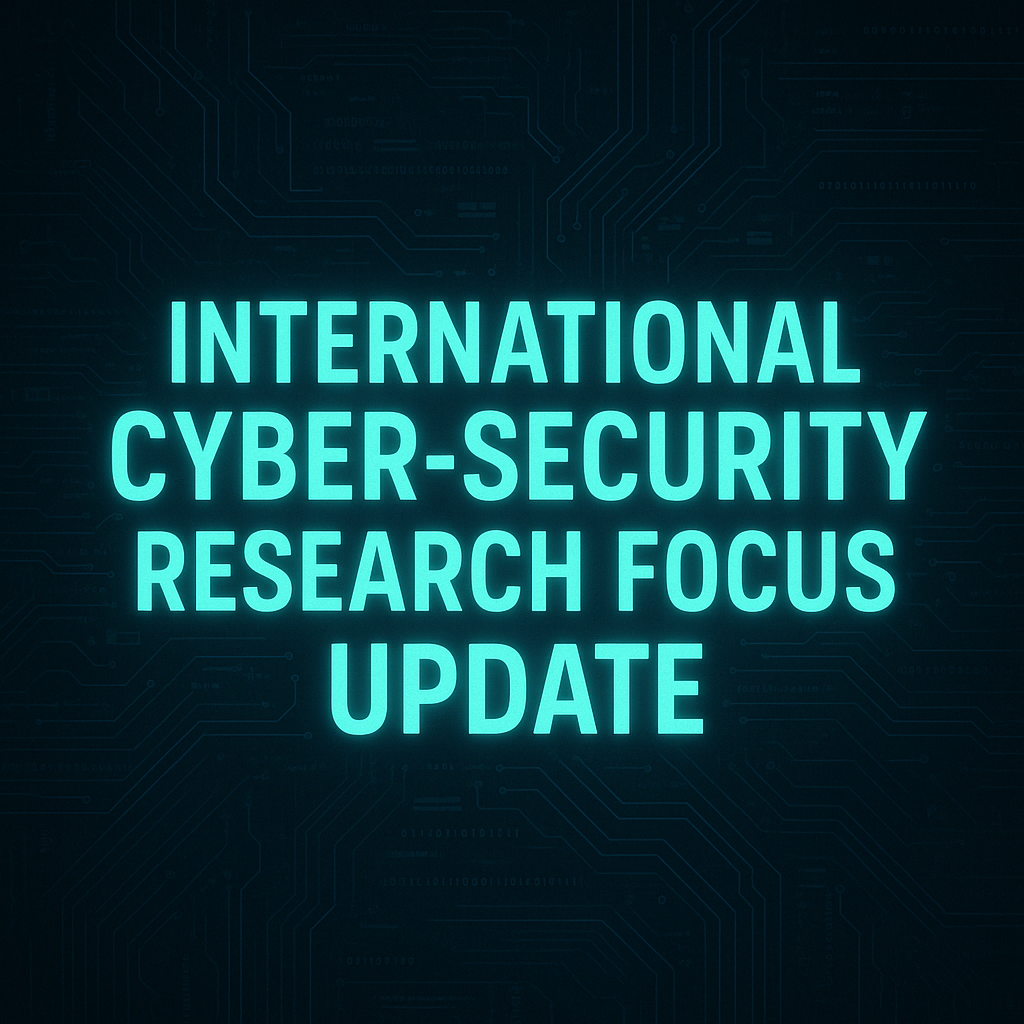Dear colleagues, partners, and friends of International Cybersecurity,
As we have navigated the complex global digital challenges in the first half of 2025, we would like to reflect on many contributions from our International Cybersecurity Team at the Institute for Peace Research and Security Policy at the University of Hamburg (IFSH). We hope this overview of our research activities will offer you valuable insights and inspiration. We also invite you to visit our weekly Substack newsletter “Cyber & Cognitive Conflict Compass (4C)”.
Shaping Cybersecurity Conference 2025
For another year, we partnered with the German Federal Foreign Office and the DEEP – Institute for Deep Tech Innovation at ESMT Berlin to organize our flagship conference, Shaping Cybersecurity in June. The main theme of the conference “Stronger Together: Cyber Capabilities for Vigilant Democracies” revolved around cyber resilience in different domains. During ICS’s workshop at the conference, we focused on various dimensions of cybersecurity, seeking to identify best practices in strategic, institutional, social, and regulatory dimensions. We hope to see you next year in June 2026 for the next iteration as well!
Active Cyber-Defense & Germany’s cyber posture
This year’s “Peace Report”, a collaboration by Germany’s leading peace research institutes, diagnoses “peace in retreat”, as Europe must take matters of security in its own hands. Matthias’ contribution argues: the same is true in cyberspace, as Russian and Chinese Cyber-Operations against Europe reached new dimensions in 2024.
At the German Forum on Security Policy (BAKS), Matthias presented a detailed analysis of China’s cyber doctrine and use of offensive cyber-power with campaigns such as Volt and Salt-Typhoon. Unfortunately and despite the Zeitenwende in defense and security, Germany has not yet updated its cyber-posture to reflect this new threat landscape. Other countries are more active and are upgrading their purely defensive cyber-strategies with offensive components. We witness a global “turn to the cyber offense” and Germany needs to update its strategic approach to active-cyber defense and offensive cyber-operations as well, as Matthias argues in an analysis for Internationale Politik.
Authoritarianism and the Weaponization of Technology: Democracy on the Defensive?
With the inauguration of Donald Trump, Matthias warned of a growing tech-authoritarian shift. In several op-eds – including for heise.de and golem.de he noted how authoritarian states and ideologically driven tech-billionaires exploit digital platforms to undermine liberal democracies. Moreover, with the U.S. drifting toward digital authoritarianism, Europe’s reliance on the U.S. technology poses acute security and sovereignty risks.
AI-generated deepfakes evolve as a disruptive force influencing social and political processes. Mateusz published a range of studies analyzing how synthetic content threatens democracy and democratic values and how it can be used in cyberattacks and cyber-related crimes. In his journal article “A Teleological Interpretation of the Definition of DeepFakes in the EU AI Act”, he proposes some legal refinements to the definition of deepfakes. His article in Politics & Policy evaluates how deepfakes are already used in political campaigns. In a separate commentary for Future Shift Labs, Mateusz asks: where do we draw the line between persuasion and deception in modern election campaigns? He calls for reflecting on the limits of digital manipulation. He also co-authored a policy report entitled “The Pervasive Influence of AI on Global Political Campaigns 2024”. In other Opeds, Mateusz and Matthias warn that authoritarian states increasingly turn to LLM-poisoning and weaponizing internet memes, a new angle in hybrid warfare.
Cyber Operations in Modern Warfare
The IFSH team actively contributed to understanding new forms of cyber-conflicts, including cognitive and information dimensions of cyber-activities. Together with Konrad Adenauer Stiftung, we organized a closed-workshop on the intersection between cyber- and cognitive activities. For the magazine “Auftrag” Mateusz analyzed cyber and information wars as the new fronts in the digital age.
Matthias’ journal article titled “Cyber Operations in the Wars in Ukraine and the Gaza Strip” provides the first systematic cross-case analysis of cyber-operations in war times. While cyber-operations are prevalent in war, they are currently ill-suited for conventional effects and mostly employed for reconnaissance and psychological purposes. The publication of the article was accompanied by a webinar organized by Matthias and Lena.
Gender Violence and Non-Consensual Deepfakes
One of the most pressing issues correlated with synthetic media is the rise of non-consensual intimate imagery. Together with Maria Pawelec, Mikołaj Małecki and Karolina Mania, Mateusz published two major policy reports with the CEE Digital Democracy Watch, highlighting the ongoing victimization of women and its chilling effect on their political participation. The OpEd in EUObserver urges the European Union to follow the U.S. example and adopt stricter protection for victims. As Mateusz and Maria argue, digital violence has become a silent epidemic, and a real threat to our common values. Mateusz, together with Mikołaj Małecki and Katarzyna Mika-Łabuz, published an article on Child pornography in the form of deep fakes, too, addressing a very important cyber-related crime.
We wish you a safe and resilient remainder of 2025!
Warm regards,
Your International Cybersecurity Team at IFSH
Matthias, Mateusz, Lena and Florian

